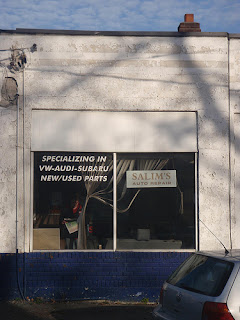When your car is in need of repairs, think about making repairs on your own! Use this information to guide you through your auto repair needs. You’ll save a little bit of cash while feeling good about your skills.
Battery Charger
Get a good battery charger to keep in your car. Learn how to find the points where you should connect the battery charger connects.
Make sure that you often check the radiator. Let the car run a while, but only long enough to let the fluid circulate. You never open up the radiator if your car that is running. Check the radiator fluid by using a dipstick and remember to dilute coolant with water before putting it in the radiator.
Never leave anything in your car when it is getting repaired. Mechanics might have to empty the work and they cannot be held responsible if you discover something missing. Empty both the trunk too.
Look out for obvious “red flags” when dealing with a warning that your repair man is no good. If they talk to you in circles or they don’t pay attention to your questions, then you will want to go elsewhere. You should feel like you can trust them, so don’t be afraid to choose another one.
While most mechanics can be trusted, you don’t want to be paying too much money for the repairs needed. Search for a reliable shops that is knowledgeable with your kind of vehicle you have. These repair shops are more likely to understand how to perform the repairs your car has.
Replacing the bulbs on your taillights or taillight is much cheaper when you both time and money. It’s easier to do in some cars, but doing it yourself is much cheaper than hiring a mechanic. See if anyone you know can give you how it’s done.
Never neglect your wiper blades. You need new windshield wipers if they are streaking or making noises and leaving streaks on the glass.
Ask about labor rates and prices before hiring a mechanic. Some repair shops have details about their rates posted on the walls, so make sure you know exactly what they are. You must be able to tell how and why you are being billed for your car repairs. Some shops have estimated repair times that are established by certain manufacturers. Some “Minor” repairs can take all day jobs according to the manufacturer.
Check tire pressure each time you fill up on gas. Look at your tires and ensure that they there is nothing embedded in them. You do not want to take any chances by driving around with faulty tires.
Warranties can be very important when you need to replace parts. Ask the mechanic about any warranties on these parts.
Don’t buy any parts to you that say they’re going to last forever. This is simply a tactic they use to get consumers to buy those parts. One example is that some vehicles say their transmission fluid.While this does not need to be changed as often as typical fluid, it must be changed around every 80,000 miles or so.
Bleed brakes after fixing them. Test it for leaks to be sure the fluid won’t run out. You can test drive in an area with little to no traffic. Start slowly to make sure that the repair before you start to drive faster.
Don’t hire the mechanic who diagnosed your car as soon as you receive a quote for service. Contact other shops or dealerships and compare what they would charge for an estimate on the first mechanic. If another place can fix it cheaper, pay the shop for the labor and get your car fixed elsewhere.
You might feel intimidated when you first learn about auto repair. But common auto problems can be dealt with safely with the right know-how. Keep these tips in mind and your confidence will soar while your repair bills plummet.
part of auto repair tips
